José Carlos Caetano Xavier
José Carlos Caetano Xavier is a Portuguese scientist (Marine biologist) and Polar explorer.
José Carlos Caetano Xavier | |
|---|---|
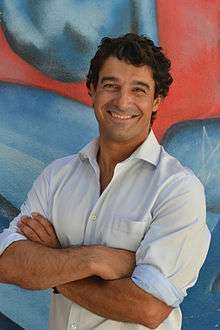 | |
| Born | 30 April 1975 Coimbra, Portugal |
| Occupation | Portuguese scientist and Polar explorer |
| Language | Portuguese |
| Nationality | Portuguese |
| Website | |
| Official Blog | |
Early life and education
Xavier graduated from University of Algarve with a master's degree in Marine Biology in 1997 and earned a Ph.D. from the University of Cambridge (Queen's college) in 1999. He has been carrying out Antarctic research since 1997, on 7 research expeditions (comprising more than 3 years); most recently in 2012.
Career
Xavier is a Professor and principal investigator of the Institute of Marine Research of the University of Coimbra [1](Portugal) and at the British Antarctic Survey (Cambridge, UK) collaborating with researchers from more than 15 countries.
He was one of the leading scientists for the implementation of the national research program PROPOLAR and of the educational program LATITUDE60!, during the International Polar Year.
Xavier co-founded the Association of Polar Early Career Scientists and is also a member of the Education and Outreach sub-committee of the International Polar Year. He is involved in more than 40 educational activities and events, nationally and internationally, giving talks in schools, producing exhibitions and directing educational films, among other activities.
He was involved in the institutional efforts for Portugal to join the Scientific Committee for Antarctic Research (2006), European Polar Board (2007) and signing the Antarctic Treaty (2010). He co-led Portugal's polar science, education and outreach activities during the International Polar Year.
Investigation interests
In his research areas are Marine Biology, Behavioral Ecology, Oceanography, Modeling, Foraging and Feeding Ecology. Xavier studies the foraging behavior and feeding ecology of top predators (namely penguins, albatrosses and seals) in relation to climate change. As a marine biologist, his main research areas are focused on understanding food web dynamics in marine ecosystems. Xavier studies penguins, albatrosses, seals and other mammals, sharks, conger eels and other fish, turtles, paying special attention to Cephalopods in the diet of top predators.
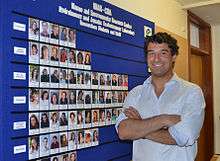
- Behavioral ecology of top predators in relation to climate change in the Antarctic Ocean
- Food choices of top predators: squid, fish or krill
- Quantification of the impact of predators in ocean resources: implications on conservation and fisheries management
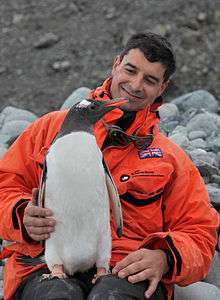
Awards
In 2011, Xavier was the youngest recipient of the Martha T. Muse Prize for his work on science and politics in the Antarctic[2]
Books
- Xavier, José C. (2014). Experiência Antárctica Relatos de um Cientista Polar Português. gradiva. ISBN 978-989-616-572-7.
- Xavier, José C.; Vieira, Gonçalo T.; Canário, Adelino (2006). Portuguese Science Strategy for the International Polar Year. Portuguese Committee for the International Polar Year 2007-08.
- Xavier, JC; Cherel, Y (2009). Cephalopod beak guide for the Southern Ocean. Jose Xavier. GGKEY:B12NB0YD37G.
Scientific societies
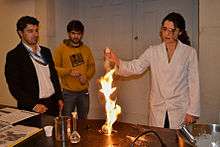
- Scientific committee for Antarctic Research (SCAR) research program SCAR Ant-ERA (Antarctic Thresholds – Ecosystems resilience and adaptation) (Scientific Steering Committee member; 2012- now)
- Foundation for Science and Technology (Scientific consultant; 2011- now)
- Scientific Committee for Antarctic Research (SCAR) Development Council (Executive committee, Western Europe Representative and Vice-Chair for Early Career Scientists) (2011- now)
- Co-secretary and newsletter editor of the research program Evolution and Biodiversity in the Antarctic (EBA), of the Scientific Committee of Antarctic Research (SCAR) (2010- now)
- Finance Committee of the Scientific Committee of the Antarctic Research (2010-now)
- Scientific standing group of Life Sciences of the Scientific Committee for Antarctic Research (SCAR) (APECS international nominated representative) (2010)
- Scientific Committee of the research program Integrating Climate and Ecosystem Dynamics for the Southern Ocean (ICED), program integrated in Globec and IMBER.mber of the Scientific Standing Group of Life Sciences of the Scientific Committee for Antarctic Research (SCAR; Portugal representative))
- Financial Committee for the Scientific Committee for Antarctic Research
- Research Program Evolution and Biodiversity for the Antarctic (EBA) of the Scientific Committee for Antarctic Research (SCAR)
- Capacity Building, Education and Training of SCAR (Portugal representative)
- Expert group for Birds and Marine Mammals of SCAR
- Portuguese Committee for the International Polar Year (IPY)
- Executive Committee Member of the Polar Early Career Scientists (APECS; 2007-2009)
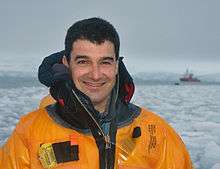
- Cephalopod International Advisory Council (CIAC)
- Geographic Society of Lisbon (SGL)
- Fellow of the Cambridge Philosophical Society (CPS), UK
- Fellow of the Cambridge European Trust (CET), UK
- Life-member of the Cambridge University Biological Society (CUBS), UK
- Collaborator of Cephalopod Web Database (Cephbase) see https://web.archive.org/web/20060118140436/http://www.cephbase.utmb.edu/
- Life-member Queens ´College, University of Cambridge (MQC), UK
- Conservation of Nature Institute (Instituto de conservação da natureza - ICN), Portugal
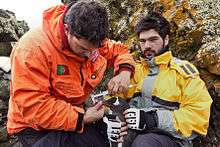
Referee and editor
- 2011 – Nominated to join the SCAR Development Council
- 2011 – Coordinator for the signature of the Memorandum of Understanding between the Foundation to the Science and Technology (Fundação para a Ciência e Tecnologia) and the * * British Antarctic Survey
- 2010-2011 – Secretary and newsletter editor of the research program Evolution and Biodiversity in the Antarctic (EBA), of the Scientific Committee of Antarctic Research (SCAR)
- 2011 – Member of the scientific commission of the program PROPOLAR [3]
- 2011 – Reviewer and scientific coordinating commission member of the mobility program “New generation of Early Career Scientists” from the bank CGD
- 2010-2011 – Reviewer of SCAR Fellowships for Life Sciences (awarding 15 000 euros in fellowships)
- 2010 – Stipend Committee of the OSLO IPY Conference for the evaluation of scholarships for early career scientists
- 2010 – Life Science Selection Committee for the Travel Grants for South American researchers to attend the Oslo IPY (invited by Tinker Foundation and Scientific Committee on Antarctic Research (SCAR)).
- 2007-2010 – Invited Scientist for International Polar Year Days
- Editorial Board Member of the Open Fish Science Journals (since May 2007)
- Journal Referee – Proceedings of the Royal Society B: Biological Sciences, Journal of Experimental Marine Biology and Ecology, Polar Biology, Marine Ecology Progress Series, Marine Biology, Reviews for Fish Biology and Fisheries, Ecography, Ibis (International journal of avian science of the British Ornithologists’ Union), Emu ( Austral Ornithology is the premier journal for ornithological research and reviews in the Southern Hemisphere), Aquatic Living Resources, Journal of Avian Biology, ACTA ZOOLOGICA SINICA, Fisheries Research
- Referee for National funding organizations – US NSF (American National Science Foundation) and NSERC (Natural Sciences and Engineering Research Council of Canada)
Notes
- Institute of Marine Research of the University of Coimbra
- "Martha T Muse Prize for Science and Policy in Antarctica". Archived from the original on 2017-09-14. Retrieved 2013-04-30.
- Programa Polar Português (PROPOLAR) - Campanha Antártica 2011-12 Archived 2013-02-24 at the Wayback Machine
External links
- 2011 Martha T Muse Prize for Science and Policy in Antarctica, Tinker Foundation
- 2011 Martha T. Muse Prize, International Polar Foundation, October 18, 2011
- Official Blog
- My way of helping the penguins, Why is science important?, December 17, 2008
- YouTube (in Portuguese), Mar 11, 2008
- Professional traveller, UP Magazine (TAP Airlines), Sep 01, 2010